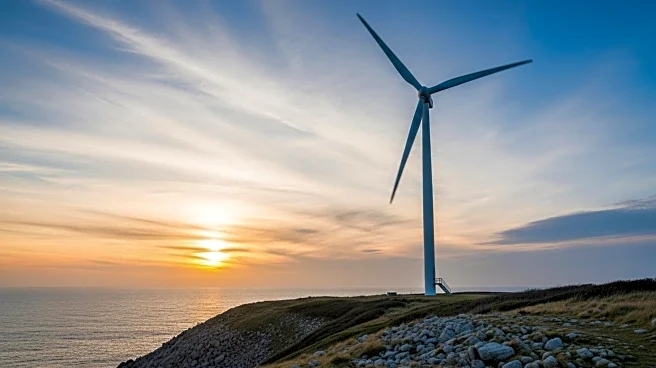What is the story about?
What's Happening?
The UK is leveraging Freeport status to expedite infrastructure development for its offshore wind sector, crucial for meeting net zero 2030 goals. Teesworks, located in Tees Valley, is central to this initiative, offering incentives like tax relief and duty deferral to attract investment. The Freeport status facilitates faster development of infrastructure, supply chain capacity, and skilled talent, essential for supporting large-scale offshore wind projects like Dogger Bank.
Why It's Important?
Freeport status provides significant economic advantages, reducing costs and financial risks for companies involved in offshore wind projects. This accelerates the UK's transition to clean energy and stimulates regional economic growth. The initiative strengthens international partnerships and export opportunities, positioning the UK as a leader in renewable energy development. The integration of manufacturing and logistics within Freeport sites enhances efficiency and competitiveness in the global market.
What's Next?
Teesworks aims to expand its operations, attracting global supply chain players and developing key infrastructure to support offshore wind manufacturing. The continued growth of Freeport sites will likely lead to increased investment and job creation, further boosting the UK's renewable energy sector. The focus on environmental sustainability and efficient logistics will play a crucial role in achieving net zero targets and enhancing the UK's energy independence.
Beyond the Headlines
The Freeport model represents a strategic approach to economic development, emphasizing the importance of incentives in driving industry growth. It highlights the potential for Freeports to transform regional economies and support sustainable energy transitions. The initiative underscores the need for collaboration between government, industry, and international partners to achieve ambitious climate goals.
















